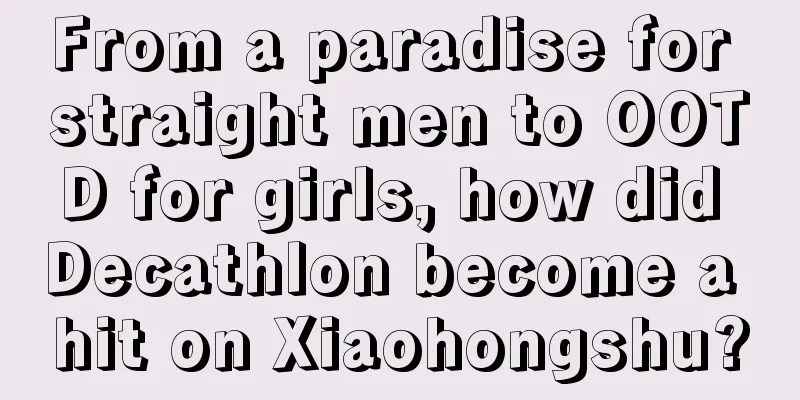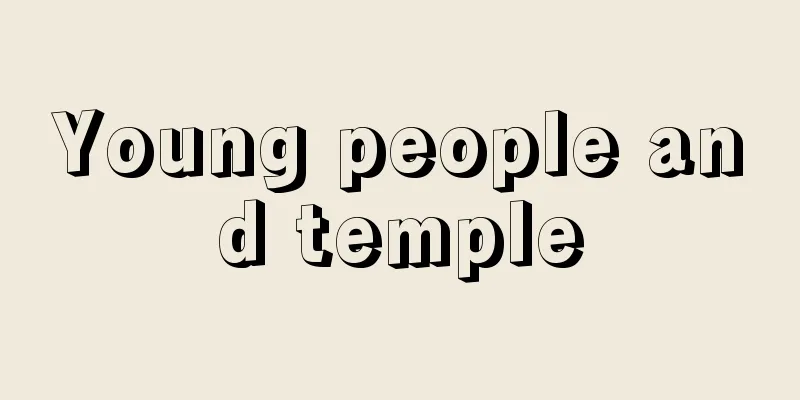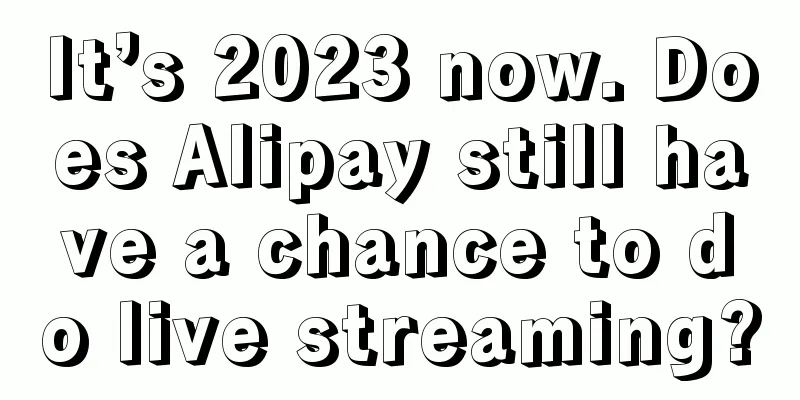Xiaohongshu, Bilibili, Kuaishou, Internet platforms set off a new wave of "poetry revival"

Recently, "Space Exploration Editorial Department" was released. What swept the social platforms was not the heated discussion about the plot, but the poetry written by the film's screenwriter and actor Sun Yitong, which was described by netizens as "absurd but romantic." A large number of young people even used Sun Yitong's poems to conduct poetry experiments at the entrances of campus cafeterias and on street telephone poles, "taking away the poems left by Sun Yitong." If we broaden our horizons, we will see an interesting cultural phenomenon: poetry, a genre that has been marginalized since the 1990s, is now quietly recovering on the Internet, with a poetry boom surging on social platforms such as Xiaohongshu, Bilibili, and Kuaishou. On Xiaohongshu, there are more than two million "poetry" notes from nearly 900,000 creators, 70% of whom are young people; On Bilibili, UP host Dai Jianye and UP host Mr. Youshan initiated topics such as "I write poems on Bilibili", accumulating tens of thousands of poems submitted by netizens in an average month, creating a craze on the site; On Kuaishou, there are more than 600,000 people writing poems. They come from all walks of life, including vegetable farmers, painters, assembly line workers, businessmen... Originally, it was a spontaneous behavior of netizens. After it gradually became popular, the platform also deliberately encouraged it to make its voice heard. Last year, the poetry magazine "Poetry Harvest" of Changjiang Literature and Art Publishing House added the column "Xiaohongshu Poetry Selection" to bring the online poetry of "amateurs" offline. At the beginning of the year, Bilibili sorted out the poems posted in the comment area, barrage and video, and published a collection of poems "No Longer Trying to Be Another Person: I Write Poems at Bilibili"; Kuaishou's Human Rearview Mirror Studio, in cooperation with Kuaishou Xinzhi and Dandu, launched a collection of poems for Kuaishou Laotie, "One Person Must Live Like a Spring". Of course, due to differences in platform type and positioning, the poetry content ecology of these three platforms is very different and each has different expressions. From the poems of the online poet "Yu Xiuhua" that have been screened countless times on WeChat Moments, to poetry now entering the homes of ordinary people, the pioneering young people of Generation Z use poetry instead of "Internet buzzwords" to express their desire to express themselves, and the middle-aged people at the grassroots who were once speechless on the Internet are now reciting poetry in short videos. The pace of the times is hurried, and the leisurely attitude of poetry seems incompatible with the accelerated pace of life. But why do people still write poetry today? 1. Young people’s “self-help by playing memes” and middle-aged people’s “rough romance”The poetry-writing users of Bilibili and Xiaohongshu are mainly young people of Generation Z. They grew up in a post-heroic era and have difficulty identifying with "big shots" and "successful people". When it comes to grand narratives and small lyricism, they firmly choose the latter.
These two poems start from small aspects, details and emotions of life, but they make people savor them and make people smile knowingly when reading them. At the same time, young people are happy to build a poetry castle based on their own discourse system, playing with self-deprecating memes, pioneering trends, finding new ways, and taking unconventional approaches... The ideas they expound are difficult for traditional poets to imagine. For example, this nonsensical doggerel poem "Perfunctory" is written casually with "stalks", "Hmm/Okay/I know/It really makes me laugh to death". It is just a long and short sentence with simple line breaks, and it can hardly be called a poem, but it vividly depicts the communication phenomenon of interpersonal relationships in modern life, which is formalistic, smooth and without content. It is worth noting that young people always have a deep understanding of the topic of poetry creation: "Social Animal-style Poetry", which was once summarized by popular words such as "sad", "fishing", and "lying flat", is often misunderstood by the general public as "not working hard and not making progress". In fact, this is just a joke and self-mockery for workers. Under the pressure of work and life, modern poetry that tries to find the self-consistency that belongs to social animals, and is free and convenient, can better express this inner depression. A song called "Going to Work": "I'm sitting in the office/The boss is also sitting in the office/I don't know what the boss is doing/The boss doesn't know what I'm doing either." This is the young people's plain and honest words, the mask of workers at work, and the familiar slacking off in the workplace. A poem called "Traveling Thoughts" goes like this: "There are two worms in my heart/One worm wants me to go to a very far place/The other worm wants me to stay with my family forever/They make my heart itchy." Such an abstract description can also help us imagine the struggle of a "small town test-taker" who is about to graduate between the struggles of the big city and the stable system of the small town. Liu Qing, Zijiang Distinguished Professor at East China Normal University and UP host at Bilibili, interprets this creative passion of young people as a kind of spiritual "self-rescue" after work: "Proving that I am still active as a spirit and saving myself from mediocrity and oblivion." Of course, it is not just young people who write poetry online. For most ordinary people, life is never easy, and they are burdened with all kinds of pressure. It is not easy for teenagers, young adults, and even more difficult for middle-aged people. There are too many middle-aged poets on Kuaishou. They are more diverse, coming from the ridges of the fields and the steel and mud tiles in the city; they are at the grassroots level, doing very hard work, and have seen many aspects of life. Therefore, many of them write about the grassroots experiences in rural and urban life, revealing the difficulties and pain, loneliness and confusion therein. For example, in the poem "Planting Trees", "She is an abandoned child/a poor peasant/never went to school/trusts in the philosophy of the hoe and spade/now her back is a little hunched and the hands holding the sapling are shaking/so am I/we cover the soil together/correct each other together" This is an ordinary and trivial life but equally worth seeing. There will also be rougher and more undecorated cries, "Line Chief Zhu has a dead duck's mouth, she is so stubborn that you doubt your life/She seems to be promoted by the boss to make trouble/She looks at the defective products and insists that there is no problem." The undecorated words are his cries, although silent, they can evoke empathy. There are even more grand narratives such as war and epidemic prevention. A poem "Poet of the Electronics Factory" "Tonight/I am sick in bed/Lonely listening to my roommate talking about the news of the Russian-Ukrainian war/The power is out/How I wish I had a candle that would not go out/So that I can continue to study Haizi and Yu Xiuhua in the dark world" It is worth noting that their poems never fall into shouting and denouncing. They will take the initiative to reflect and write some words full of enthusiasm and life resilience, just like the poem written by this Guizhou history teacher, "Blooming Romance in Ordinary Life", "A person/must live like a spring/extract sweetness from a peach blossom/let life break through the ground with a strong poetic flavor." This may be the "rough romance" unique to the grassroots poets. There is no calculation or ruthless deletion of words, but only the most simple nostalgia and hope for family, friendship, and love. Just as the writer Jia Xingjia described: "At this moment, those who are crumpling mahjong tiles and poker cards in their hands don't know that the shepherd behind them who has lived in the village for forty years is brewing poems. Someone is writing poetry, which can turn this ordinary day into a miracle." Whether young people or middle-aged people write poems, I feel a unified emotional expression from these Internet poems: on the road to "survival", people of all kinds try to use poetry to build a spiritual castle on the sand of the Internet to better "live" in it. 2. Internet poetry “experiments” on different platformsMiddle-aged people go to other places to work, their hometowns decline, their parents age, and their children are left behind. Generation after generation experiences joys and sorrows. Poetry serves as an opportunity and a vent when they are suffocating. So they chose Kuaishou. It is best to read the poems of Kuaishou poets with the videos of the creators on Kuaishou. Like their poems, their videos on Kuaishou are not complicated or exquisite. They recite their own poems in various life scenes, in the office, on the assembly line, on the way to deliver food... and accompanied by the popular background music of Kuaishou. Han Shimei is a typical representative of the poets emerging on Kuaishou. She is an ordinary peasant woman in her fifties from Xichuan County, Nanyang City, Henan Province. When she was born, her mother considered her an unfilial person and she was almost drowned in a urine bucket. When she was 19, her mother took a 3,000 yuan betrothal gift and forced her to marry a man with a mild intellectual disability. In order to pay off her husband's debts, she built roads and piled piles, pushing more than 100 trucks of soil a day, and was exhausted and depressed every day. Until April 2020, Han Shimei wrote and posted poems on Kuaishou.
For the first time, she found a way to live outside of the roles of wife and mother and became herself again. Among the more than 100 works she posted on Kuaishou, each one has hundreds of likes and comments, and she is called "the poet on the ridge." Young people need to escape from the heaviness and chaos of daily life and heal their emotions and spirits. Xiaohongshu blogger "Gehuaren" considers himself a street vendor poet. He once fled to Xishuangbanna to sell poems because of the fatigue brought by work. In 2022, Gehuaren joined Xiaohongshu to share his poems. As soon as he posted the third poem, it became popular and received hundreds of likes. The poem is very short, with only two sentences "Those seeds that don't want to see the world/have not sprouted", which is spiritual and philosophical. Xiaohongshu's unique graphic format is suitable for the dissemination of poetry. After that, more and more people forwarded and discussed Gehuaren's poems. Now, she has 208,000 followers on Xiaohongshu. Poetry is not only about reading and writing, but also about acquiring, expressing and interacting. A poetry exchange community has gradually taken shape on Xiaohongshu. Last year, Gehuaren launched the #Take Poetry to the Streets# experiment on Xiaohongshu. Netizens sent some casual photos, and she improvised poems. On a photo of a breakfast shop sent by a netizen, she wrote "Love is a snack/not food/I won't starve to death whenever you come." However, Bilibili has more "poets in the comment section", who write poems in the form of replies and barrages, implying an interesting social attitude. On the B station page of UP host "Mr. Youshan", there is a collection of "Poetry Conference" videos, "B station netizens write poems, each one is weirder than the other!! "," B station netizens write poems, each one is more absurd than the other!! "... Since 2021, this series has produced a total of six videos, and the number of views of each video has exceeded one million, and the highest one has exceeded three million. The content of the video is Mr. Youshan appreciating poems written by netizens in the comment section, such as "Headphones" written by netizen "Drunk and Talkative": "My mobile phone/He has social phobia/When it's noisy around/He speaks very softly/When it's quiet around/He speaks very loudly/So/I bought him/a pair of headphones." Mr. Ariyama explained: "This is a lovely poem that makes people smile. The author personifies the mobile phone and subtly criticizes those who play the volume loudly in public places such as subways. It is a gentle and clever "admonition." Dai Jianye, a professor at Central China Normal University, has also launched a poetry collection activity on Bilibili, and has continuously updated the "Poetry Genius" series of videos to appreciate the poems submitted by netizens, which has received a warm response. Because most of the fans' submissions are classical poems, he will also correct some of the rhythmic errors of young poets in the video, and also share the moving masterpieces among them. In addition, poetry Weibo accounts and a series of public accounts that read poetry before bedtime have also formed their own "poetry world". Some platforms will actively follow the trend and hold poetry festivals, markets, poetry dialogue live broadcasts, etc., bringing online poetry to the offline "scene", so that it can be felt and captured by the general public in life, forming more poetry exchange venues, breaking through the expression of poetry, and trying more out-of-the-box gameplay. 3. Poetry: A precise counterattack against the “desolation of the Internet spirit”This should be an era of poetry explosion, which fits in with today's fragmented time, cooperates with the common denominator deep in everyone's soul, and comforts the thirsty inner emotions of modern people. British writer William Somerset Maugham once said that poetry is "a portable refuge". In the "folds" of life, everyone has his or her own poem, and everyone's poem is a poem of this era. To clarify the characteristics of the poem, we must find the diverse social thoughts that have grown in the environment of each era. Taking young people writing poetry as an example, anthropologist Xiang Biao mentioned in the preface to the book "No Longer Trying to Be Another Person" that from the 1980s to the present, young people's poetry writing has gone through at least three stages. The earliest ones were the hazy poems of Bei Dao, Gu Cheng, Shu Ting and others, such as "The night gave me black eyes, but I use them to look for light", or the description of the kapok flowers in the south as "like a heavy sigh, and like a heroic torch." This wave of poetry is very philosophical and comes from a sense of history. It is the feelings of these young people standing at an important turning point in history. The second wave was campus folk songs. “Folk poets” also emerged at that time, such as Shen Qing’s “Youth”, “With a little joy of wandering, I just go and never come back.” This type of poetry emphasizes imagery and expresses feelings about the taste of life. These rich and delicate images come from the re-emergence of the so-called “ego” consciousness. The third wave, which is the poetry of today's young people, is highly experiential and direct. They are colloquial and very straightforward. There is no extra philosophy or imagery, but a sincere and focused description of personal status and experience. For example, "Going to Work" is a direct on-site observation that sensitizes life experience and is highly communicable to others. It may not be circulated forever, but it has a powerful impact at this moment. The author learned that after the release of the poem "Going to Work", many workers were deeply touched and forwarded it to their work groups, and even discussed the poem with their bosses. It reflects the confusion of contemporary young people at work, and the mental outlook of being gradually atomized and mechanized in the huge corporate system. Especially the young people of Generation Z. Compared with the poetry of those born in the 1980s and 1990s, which may be labeled as too "literary" and "pretentious", the poetry of contemporary young people is instead "flaunty" and "self-deprecating" romance. It is a self-consistent attitude towards life that attempts to self-dissolve and self-affirm under the increasing uncertainty in society in the past few years. The same is true of the poems written by middle-aged people. They have different identities and backgrounds in reality, but they can feel the complex emotions behind the society. From the bits and pieces of daily life to the news around them, they all respond with sensitive and profound thoughts, using their own language and writing to express. When it comes to poetry, there is no distinction between high and low, it only depends on your heart. Poetry is an individual's meditation, but it also depicts the collective image of society. It is also the best way to get a glimpse into the spiritual world of middle-aged people and understand the thinking spectrum of young people. In my opinion, the "re-enchantment" of poetry is more like a precise counterattack against the argument that "the spiritual barrenness of the Internet" has been ravaged. In the Internet age, WeChat Moments, public accounts, videos, any kind of digital content seems to have eternal vitality. It is stored on the Internet and can be accessed at any time. However, hot topics come and go, and the public's attention is distracted every day, immersed in fragmented reading and videos. A pessimistic argument has become mainstream: short materials are not as profound as long content. The more prosperous the cultural information, the more desolate the spiritual world. The new generation has gradually lost the ability to think independently and express in writing. Nowadays, through the Internet, we can see that poets who write poetry, whether it is Generation Z who bear too much scrutiny, or the aphasic people who bear too much hardship, they still have faith in words and pursuit of expression, and even in a fragmented era, they have still found matching ways of expression. Poetry is short and concise, and it captures the big picture from the small, which is exactly in line with the fast-food reading on the Internet. It is also romantic and profound, making it a perfect narrative medium for young people. The ancient poetry learning trend on Bilibili and the life poetry exchange community on Xiaohongshu are like online learning classes. The rapidly updated information becomes the inspiration for the pen, and the recommendation of the interest algorithm creates a gathering of like-minded people. Even the grassroots people and the more invisible and silent people in society have also participated in it. Short video platforms like Kuaishou have lowered the threshold for their participation. At the same time, by encouraging display and publication, they have magnified their courage to participate in the Internet and express themselves, and built more spiritual homes in their rough lives. Overall, whether it is the more down-to-earth, middle-aged, and speechless people in the city, or the younger generation who are regarded as avant-garde, these people who were once regarded as "increasingly without thinking or expressing themselves about life, and only attracted by vulgar nipple music" are all using poetry to express their thoughts and silently fight back. Data and algorithms bring not only a niche "cocoon", but also the romance in the heart. The revival of poetry is reflected in this. Author: 24 Source: WeChat public account "Doujiao TMT (ID: ylwanjia)" |
<<: Brand differentiation and establishment
Recommend
Are Amazon's flash sales effective? Does Amazon charge for flash sales?
In today's fast-paced and highly competitive e...
How long will it take for a new Amazon store to have a shopping cart? How can I get one?
Friends who have just opened a store on Amazon are...
Operational Manual: How to Improve Data Insights?
The author of this article will teach you how to i...
How to hold a successful brand creative meeting
Brainstorming has become a common problem-solving ...
How to fill in the WEEE registration number on Amazon Germany? Detailed steps
During the National Day holiday, Amazon platform a...
Can Internet celebrity cities be replicated?
The emerging Internet celebrity cities that emerg...
A single video received over 2 million likes, amateur transformation is still the secret to traffic
The Douyin June fan growth list is out, and this t...
Emojis reveal your heart
With the rapid development of the Internet and the...
What is the most difficult thing about running an e-commerce business?
Online shopping has become a common thing in our l...
The top ten most profitable agricultural operation models (promote more and look for opportunities together)
In today's fiercely competitive market, we sho...
How to return a product through Shopify? How to cancel a return?
In the process of opening a store on Shopify, many...
What did those data people who successfully changed jobs in 2024 do right?
In recent years, the employment situation has beco...
The road to improving the capabilities of product managers and operations begins with becoming a member of the Qidian Classroom!
The Internet industry is a rapidly changing and hi...
How to adjust the Amazon advertising budget if it is exceeded? How to solve it?
Many friends on Amazon will do promotion. After al...
Does Shopee have no traffic before graduation? How to increase traffic?
There are many cross-border e-commerce platforms, ...









